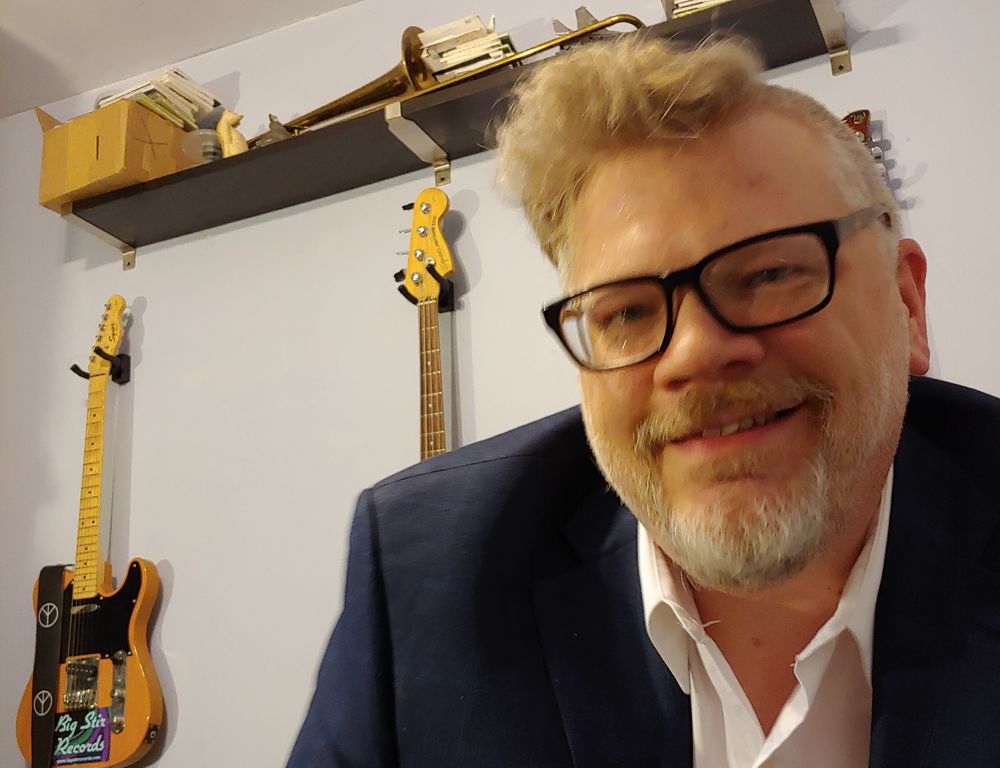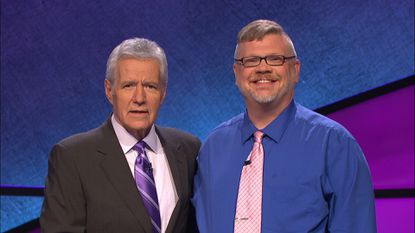Dolph Chaney has been a pop-rock pundit for many years, a supporter, a true believer, and an outspoken cheerleader for the joys of a well-strung verse-chorus-verse. He’s also made music, and has released several independent albums.
For his latest, Rebuilding Permit, he’s changed it up by teaming with Big Stir Records. You can find out more a https://bigstirrecords.com/dolph-chaney. We had some time to speak with Dolph – in amongst the insanity of our present days – about the new album, the perks and challenges of the indie world, what’s been fueling his music and where he sees it taking him now.
MusicTAP: You have recorded albums and released independently. For this one, you’ve gone with Big Stir Records. How did this come about?
Dolph Chaney: Yes, I’ve been writing, recording, and releasing music on my own since 1987, and only now am I on my first record label! Not long into the recording period for this set of songs, I felt like I was straining at the limits of what I could do myself — and accepted that I don’t have all the skills & talents, or the resources, to see the album’s vision through satisfactorily without help.
Around that same time, Big Stir began to flourish, making the leap from a concert series in Burbank, CA, to incorporating as a record label. Big Stir’s co-founder, Rex Broome, is a dear friend of around 20 years, and so I have watched the label grow steadily all the while.
Rex and his Big Stir co-founder Christina Bulbenko are also the co-leaders of the band The Armoires, so as we’ve done for a long time, Rex & I traded rough mixes of each other’s work in progress in 2018-19. I think it was in that period we saw that we were mutually moving toward each other. Big Stir released “It’s OK” as a single in August 2019 (later compiled on the Big Stir Singles: The Fourth Wave benefit CD), and that cemented our artist-and-label relationship. It’s a great community and a happy home for my work!
I suspect there’s more than clever wordplay behind the title Rebuilding Permit. Mind explaining why this came to be?
I got halfway through the writing process when I saw a pattern in the songs that hung together, and that pattern was recovery from loss. In the past two years, my family dealt with the passing of several loved ones and close friends, including that of my father after he fought with Parkinson’s and Lewy Body Dementia. While this was going on, I also made the decision to quit drinking — which has thankfully stuck for over two years and counting.
And so something that came up a lot as a theme in my recovery was not to get stuck in wallowing in the guilt and defeat and darkness, but to give myself permission to grow, to experiment, and to rebuild. The phrase Rebuilding Permit (and the concept for the album cover, of putting a permit sign in front of my home studio) fell into my head while thinking in those terms, became central to the bridge of “The Handling” (track 3 and the album’s second single), and stuck ever since.

Who appears on the album?
Here again, though I still provided all the vocals, guitars, and bass along with some Moog and percussion, I gained so much from not trying to do everything myself this time. The primary collaborator has been Milk Arnold, who mixed the album and provided such vital input that I credit him as the co-producer. We go all the way back to high-school days in Indiana, and so besides the value of his professional ear (as a live touring sound engineer) we share a lot of musical common ground and other shorthand. He’s based in Arizona, and I’m in the Chicago area, so to have that shared background as a foundation helped our communication from a distance. He also played piano on one song (“The Biscuit (Who Grabbed My Face)”, track 4). Milk brought in a drummer and fellow soundman named Clayton Melocik to play on the lead track and first single, “It’s OK.”
For the other 8 songs on the album, my Chicago friend Jim LeFager played drums. Like so many good drummers, he’s in about 73 different bands at any one time, so I was grateful to get his time. Jim added class to every song on which he played and completely transformed my vision of at least one arrangement (particularly track 5, “Diet Of Worms”). I was also very happy to have Ryan O’Malley add Hammond organ to “A Good Road Is Hard To Find,” contributing a feel I couldn’t ever have pulled off.
What was the writing/recording process for this, and is it different from previous outings?
There was a long gap between my prior album (Shenanigans, 2013) and this one. I do get songs in bursts generally — with dry spells between bunches of completed songs — but this was a particularly long fallow period. The first full song of this batch was “If I Write It Down” (track 2) in 2014. Shortly after the inauguration, “The President Of The United States Is The Breitbart Bimbo” (track 6) all but wrote itself, and from that I had momentum to complete the strongest pieces I had and write the rest.

You and I have run in similar circles among music-loving groups, both on Facebook and elsewhere. Do you feel like people within our peer group have a very specific connection to music, and periods where music came out (70s-90s), that might be unique? I also see a host of similar names pop up between us and it seems more than coincidental.
We do indeed! Many of our overlapping friends are folks I’ve met since joining the Big Stir / Futureman extended family (like Steven Wilson of Plasticsoul, Keith Klingensmith of the Legal Matters, Lindsay Murray & Nick Bertling of Gretchen’s Wheel). Then there’s the commonality we have in our love of the Lost Dogs and all that intersects with them (I wrote a Terry Taylor appreciation which will appear in the next issue of the Big Stir zine).
There’s a lot of negativity (understandably) out there about the rise of the Internet concerning making music, but what’s great about being a musician and a fan now is that you really can not only find all the music you never could have in the age of physical-only, but also communities of others who also love what you love — plus maybe another artist or two you never knew or only knew by reputation. So, the music-discovering teenagers of the 70s-90s become the artists, writers, and lifelong adult fans of today — and now we can find each other!!
It’s a weird time to be a content creator – specifically a music content creator. For many independent artists, we’ve done this thing not for a living, but because of compulsion, never expecting to make a bunch of money from it. However, you and I now see pro musicians that we’ve respected for years in bad straits. Their recordings weren’t the revenue generators – the subsequent touring was. Now that the venues are all closed (temporarily, we hope), we’re all kind of in the same boat. I was wondering about your thoughts on this. On the one hand, it feels like we are all a little closer on the same level. On the other, their livelihood is directly impacted.
Yes, and this ties a little into what I was saying before about the ways we can now find each other — fan-to-fan and fan-to-creator as well as creator-to-creator. In parallel with all that’s great about that ease of connection, you’re right that it pulls the curtain back on how deep the economic struggle is for those who create all this beauty.
I’m only a sporadic live performer, and so for me to lose all my upcoming gigs to the pandemic meant just one cancellation. But it’s brought me closer to a lot of fellow artists that have much more grave stakes ahead.
Big philosophical question. Why do you do it? What compels you to write songs, especially in today’s consumer environment?
The short, maybe cliché answer is “I have no choice.” When I neglect the music-making part of my life, everything else suffers — my depression worsens, I’m less active, and I’m less engaged with my loved ones and the world around me. Whether it’s my own or another’s, a good song lifts everything in me for at least 2 minutes and 45 seconds.
As to the consumer environment: my “appeal has been more selective” for a very long time, but what’s different on that front about Rebuilding Permit is that this time I wrote not just to create and to express myself but also to initiate real communication and connection with whomever might be listening. That line from Almost Famous: “The only true currency in this bankrupt world is what you share with someone else when you’re uncool”? Well, I’ve been uncool forever, so sales or no sales, gigs or no gigs, deals… or no deals, that’s the currency I’m looking for.
Of the songs on Rebuilding Permit, which one sticks with you the most? What’s the track that caused you to silently think “nailed it,” and why?
I’m past the stage of hearing only the flaws and getting all Buddy-Rich-on-the-bus at myself, thankfully — I’m well satisfied with each song and how they hang together.
For me, the album’s heart is “Broken” (track 7), which was the first one I recorded. Jim & I locked in well on it, and Milk pulled out all the stops in creating the build and release of the arrangement and final mix. The song is a call out to anyone who feels other or excluded or less-than — because I have, and I know how much it can mean to hear the voice of a fellow traveler. That was my aim, throughout this process, so I hope that’s what we built.
Thanks to Dolph Chaney for taking the time to speak with MusicTAP. You can learn more about Rebuilding Permit at: https://bigstirrecords.com/dolph-chaney